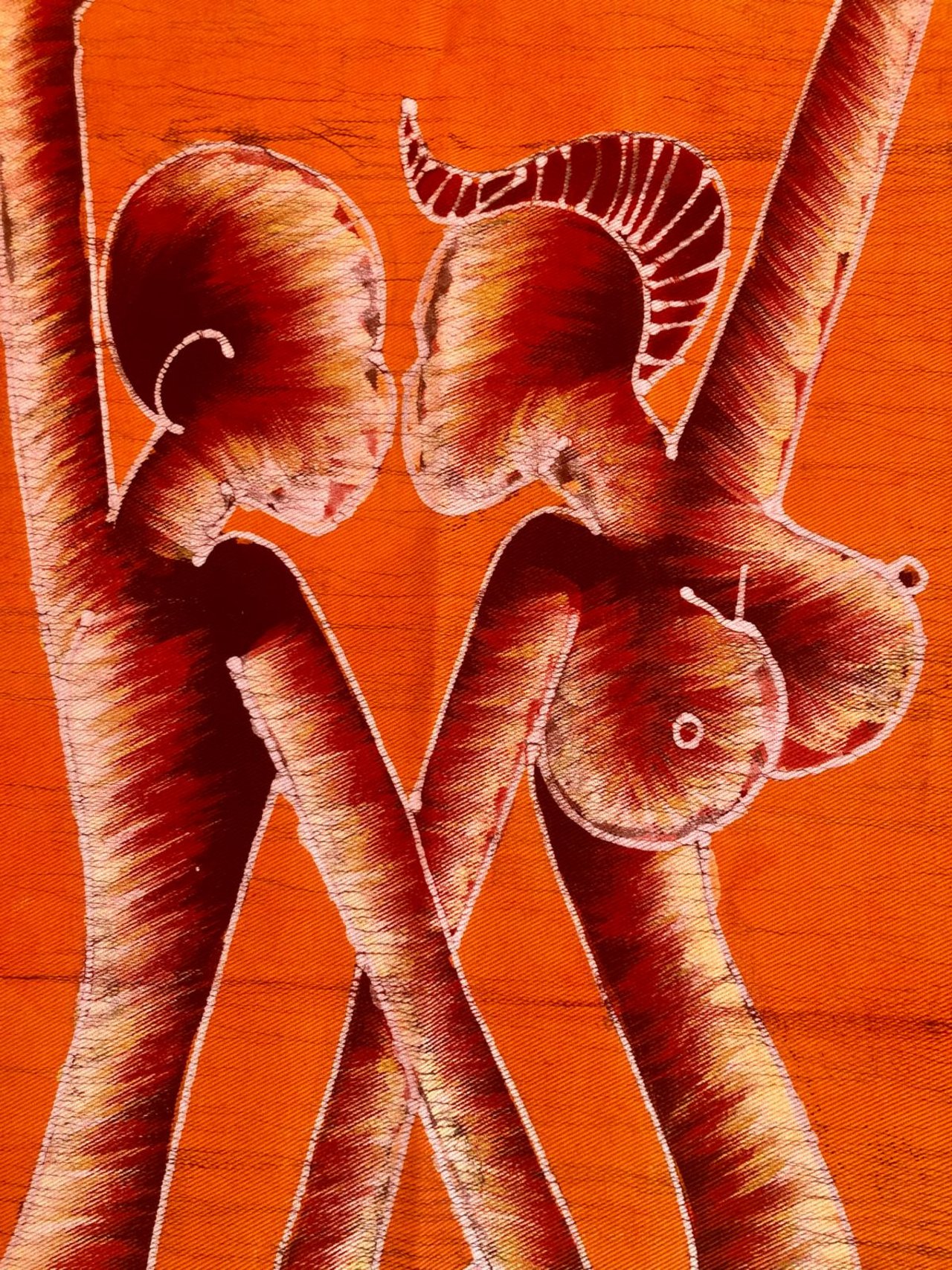
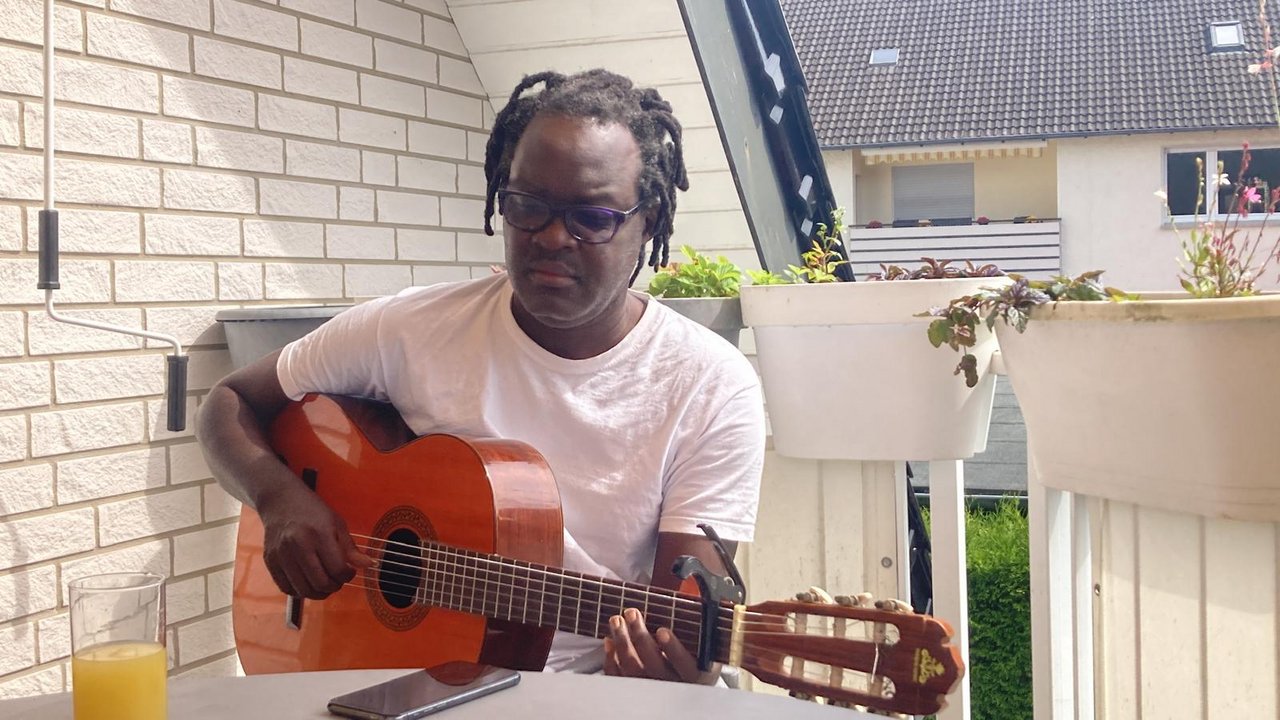
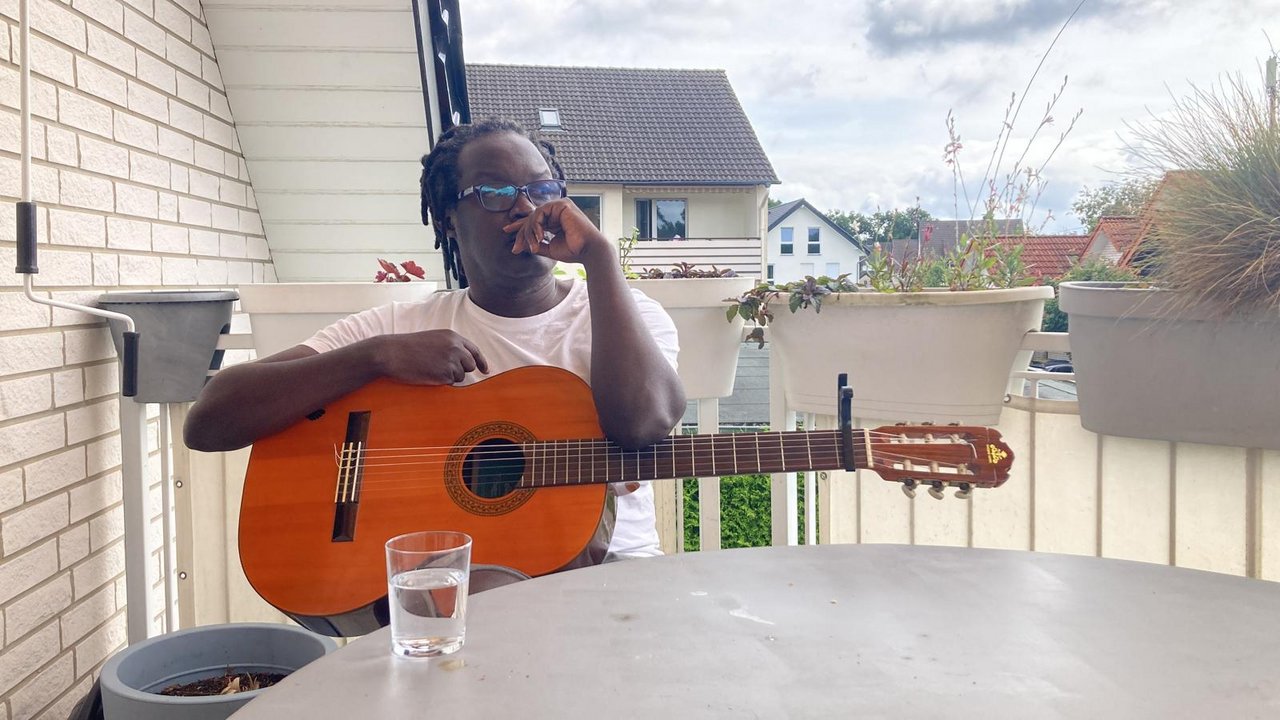
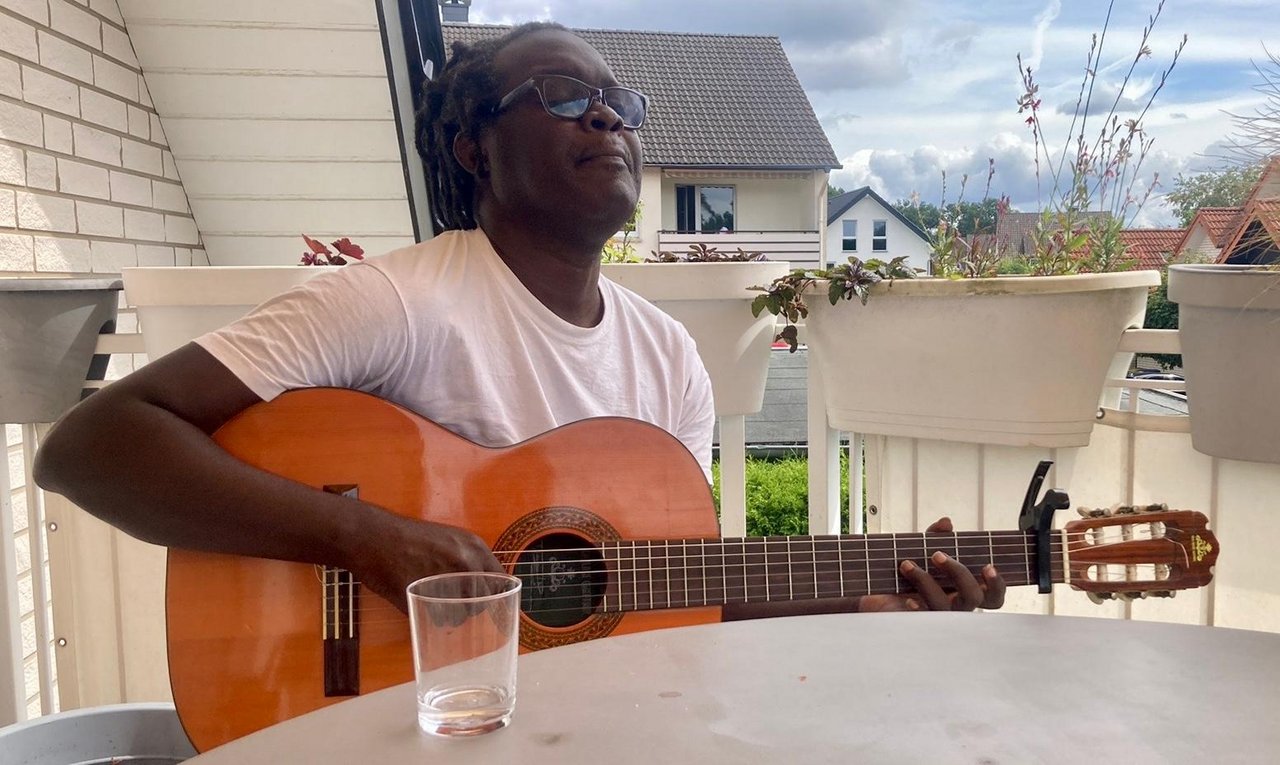
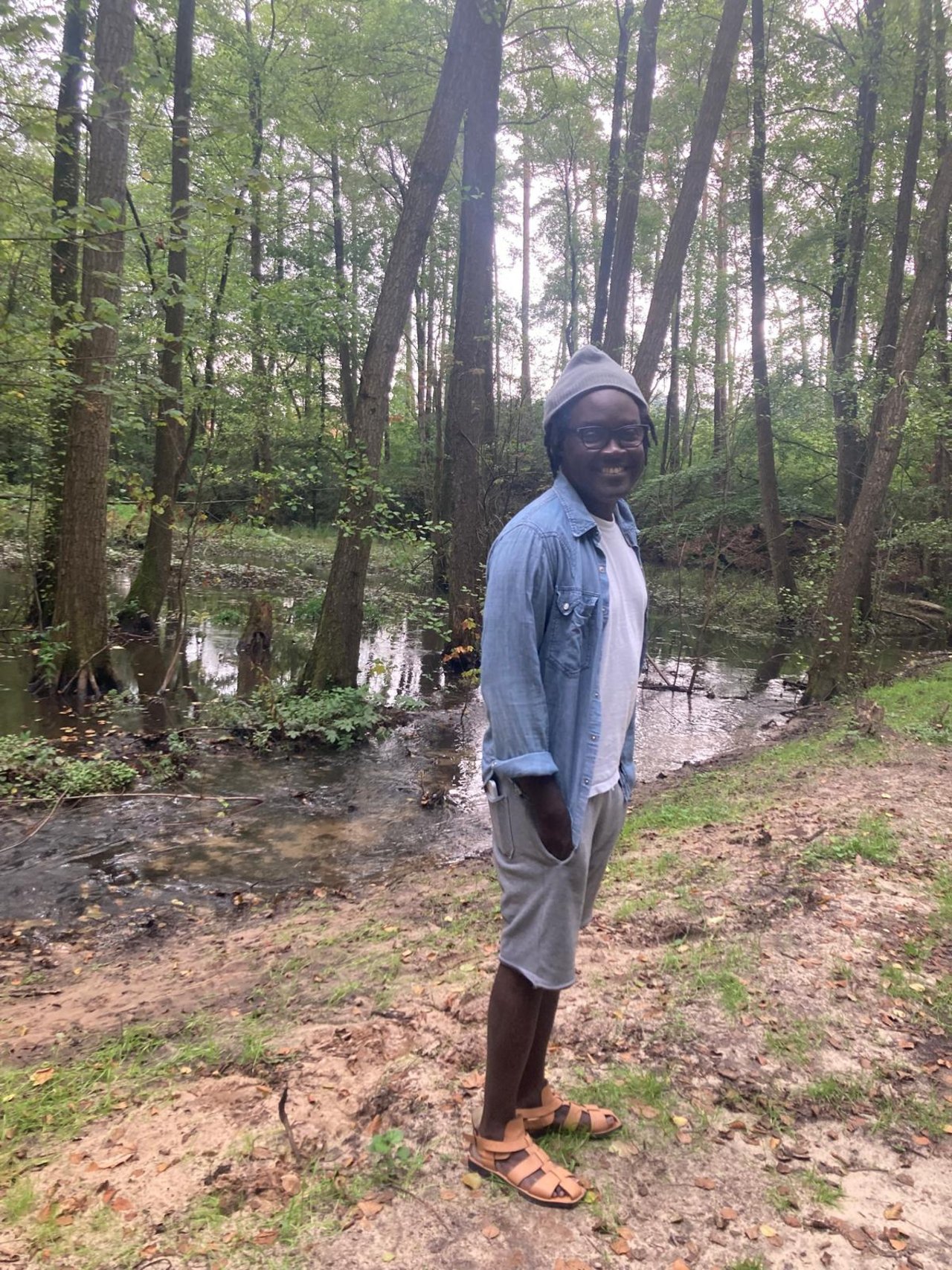
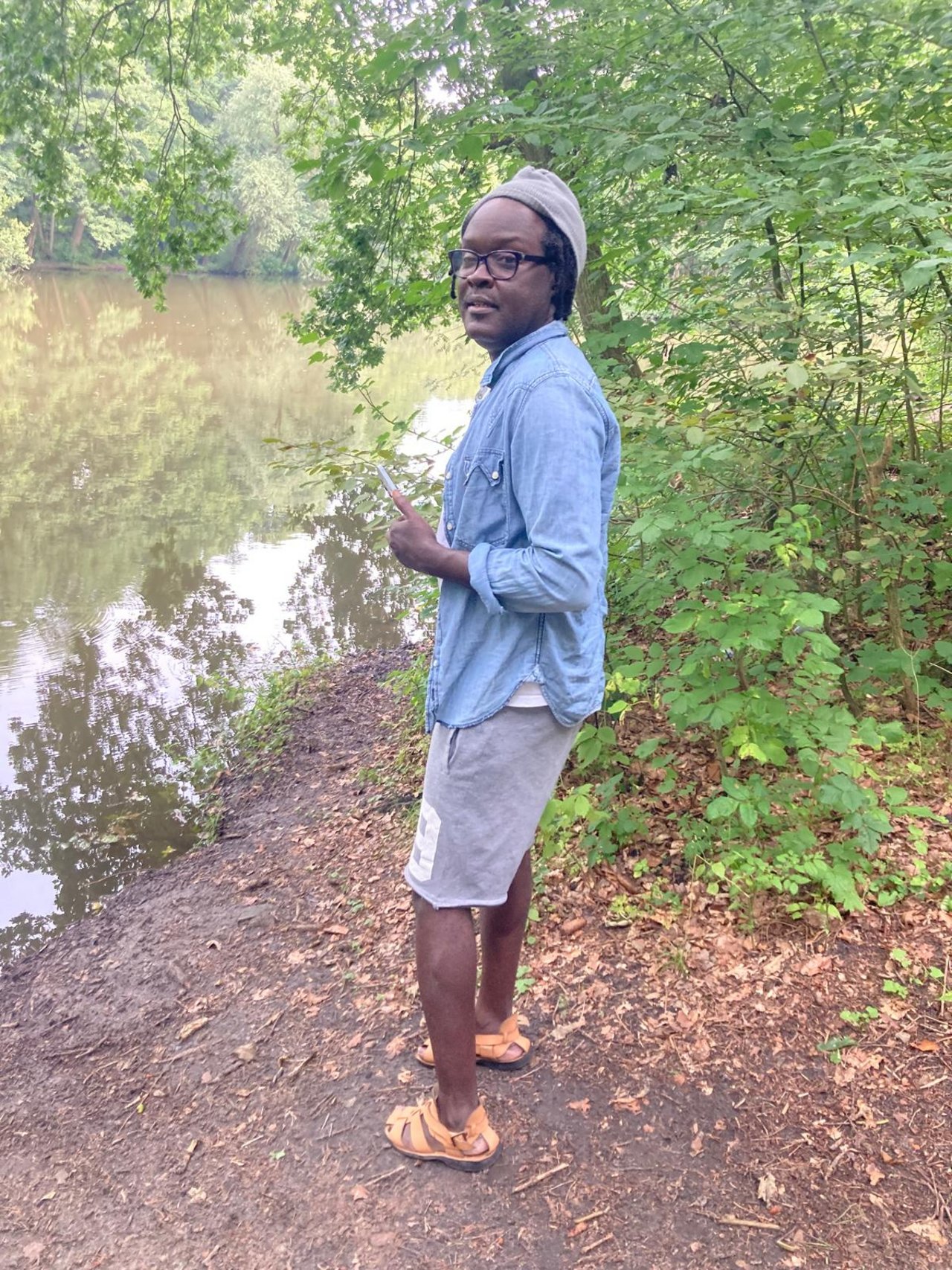
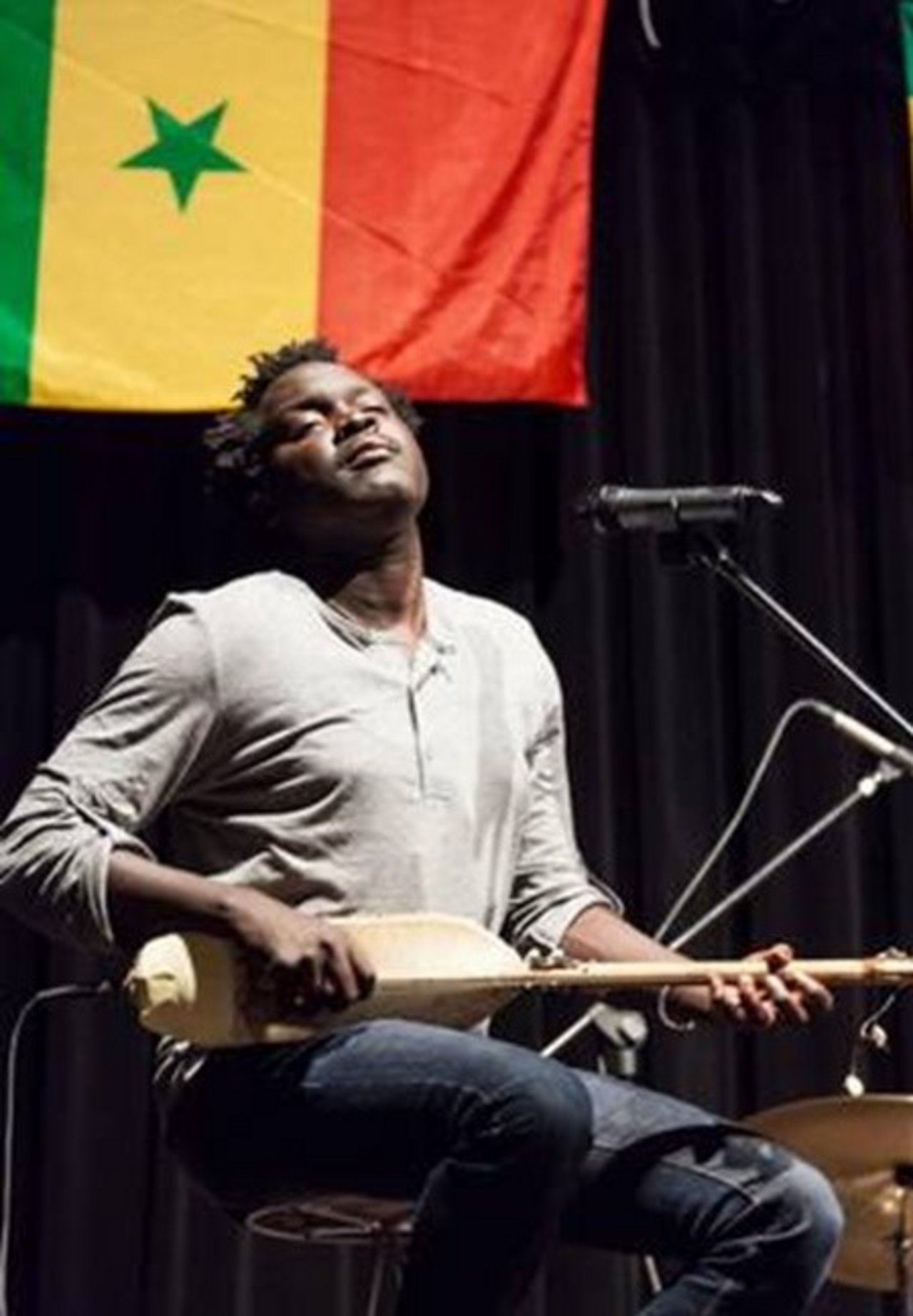

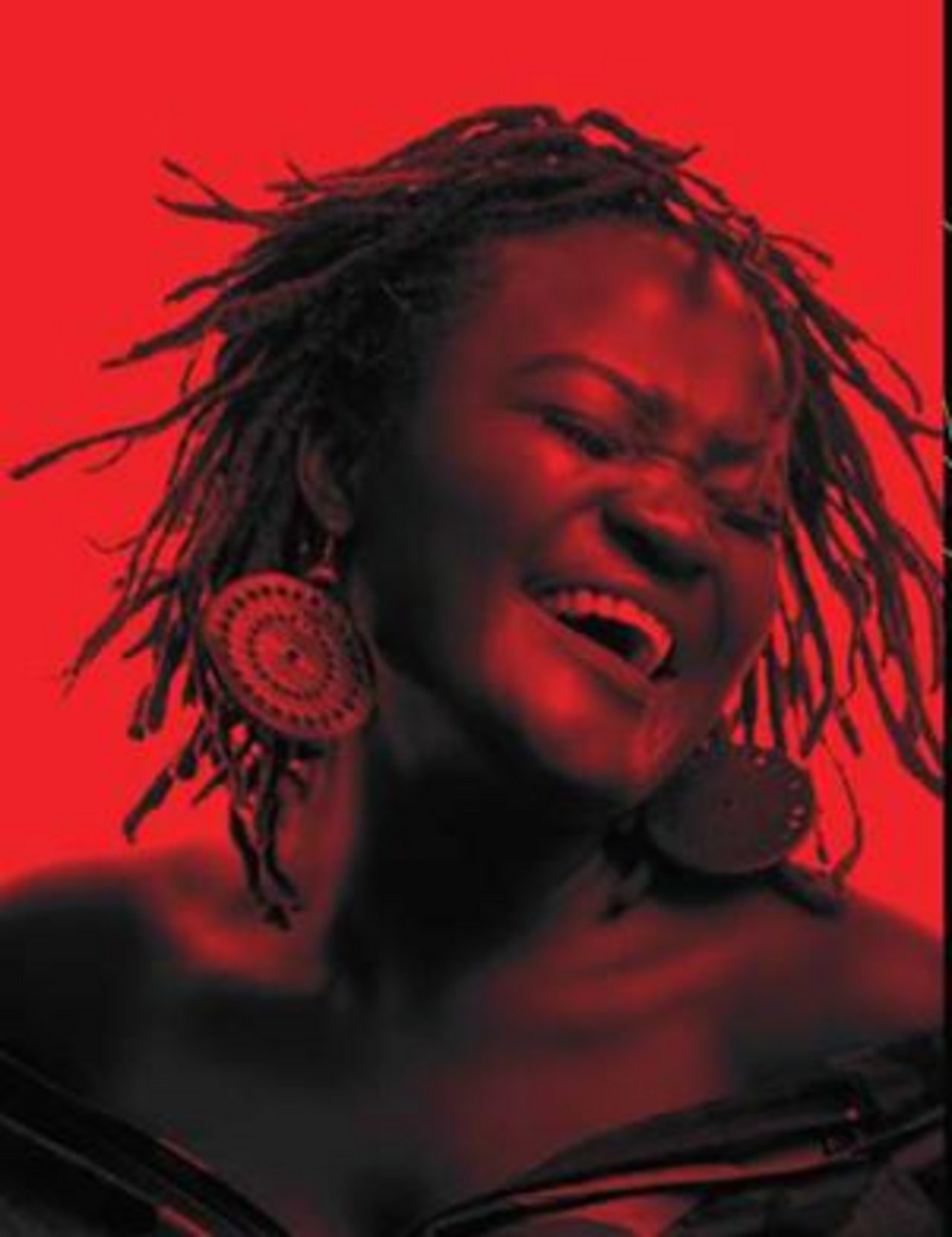

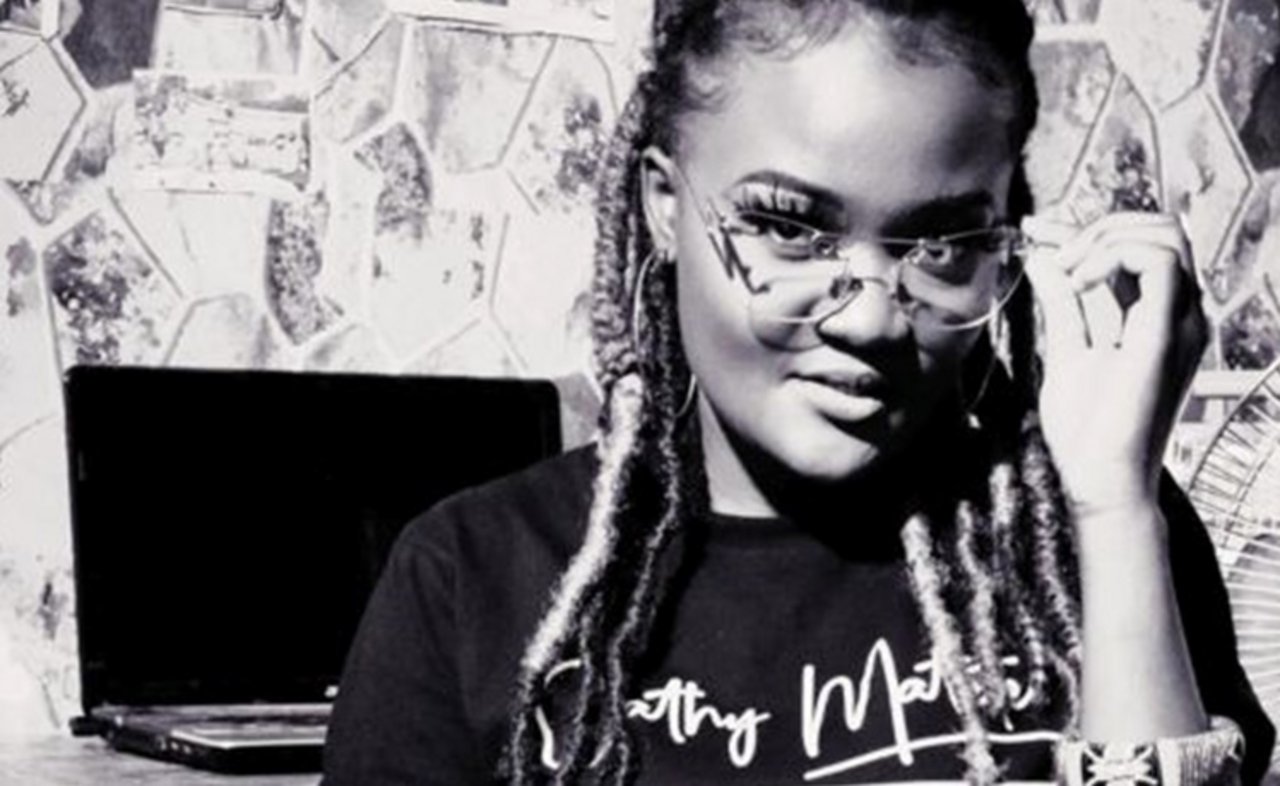




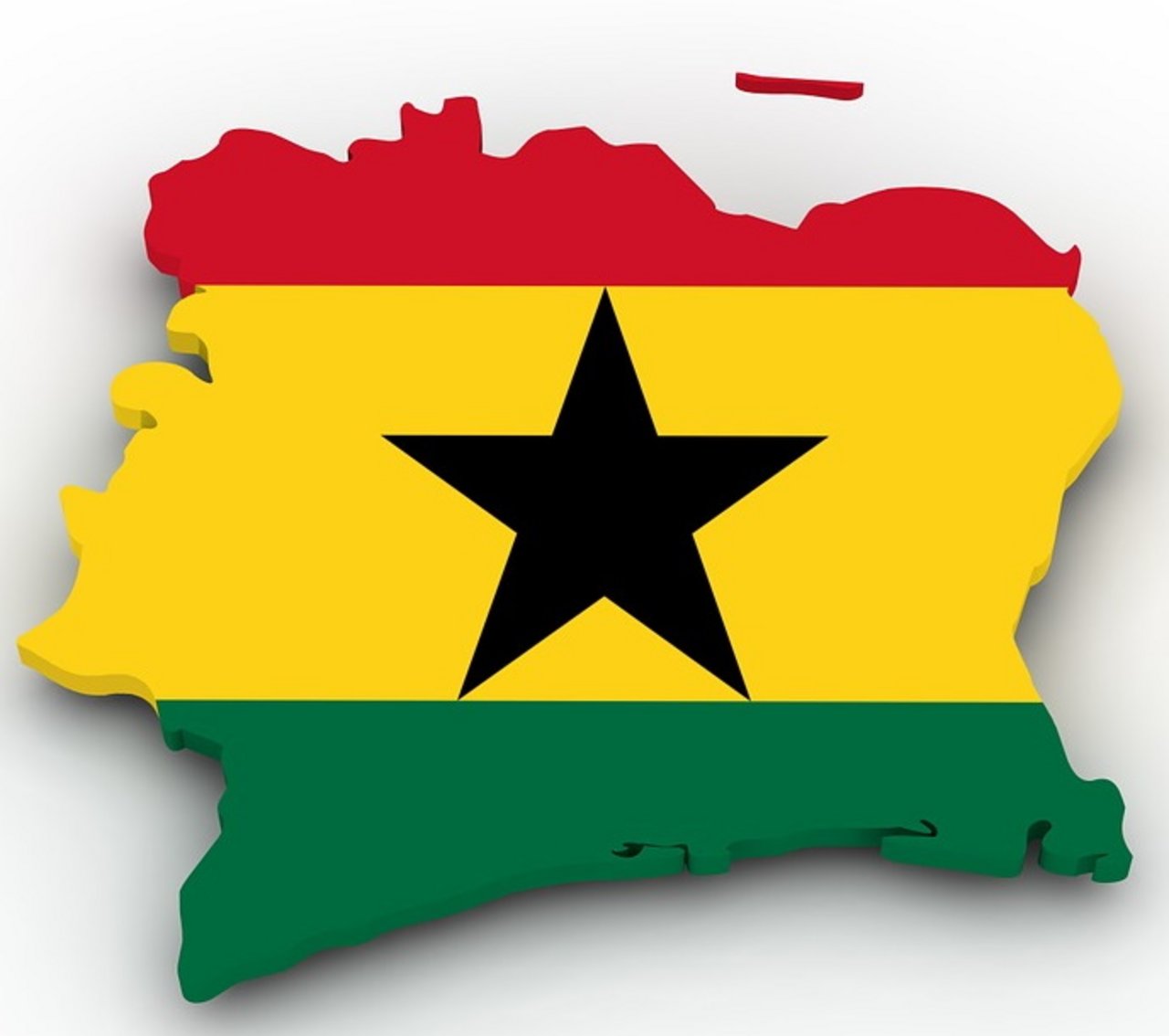


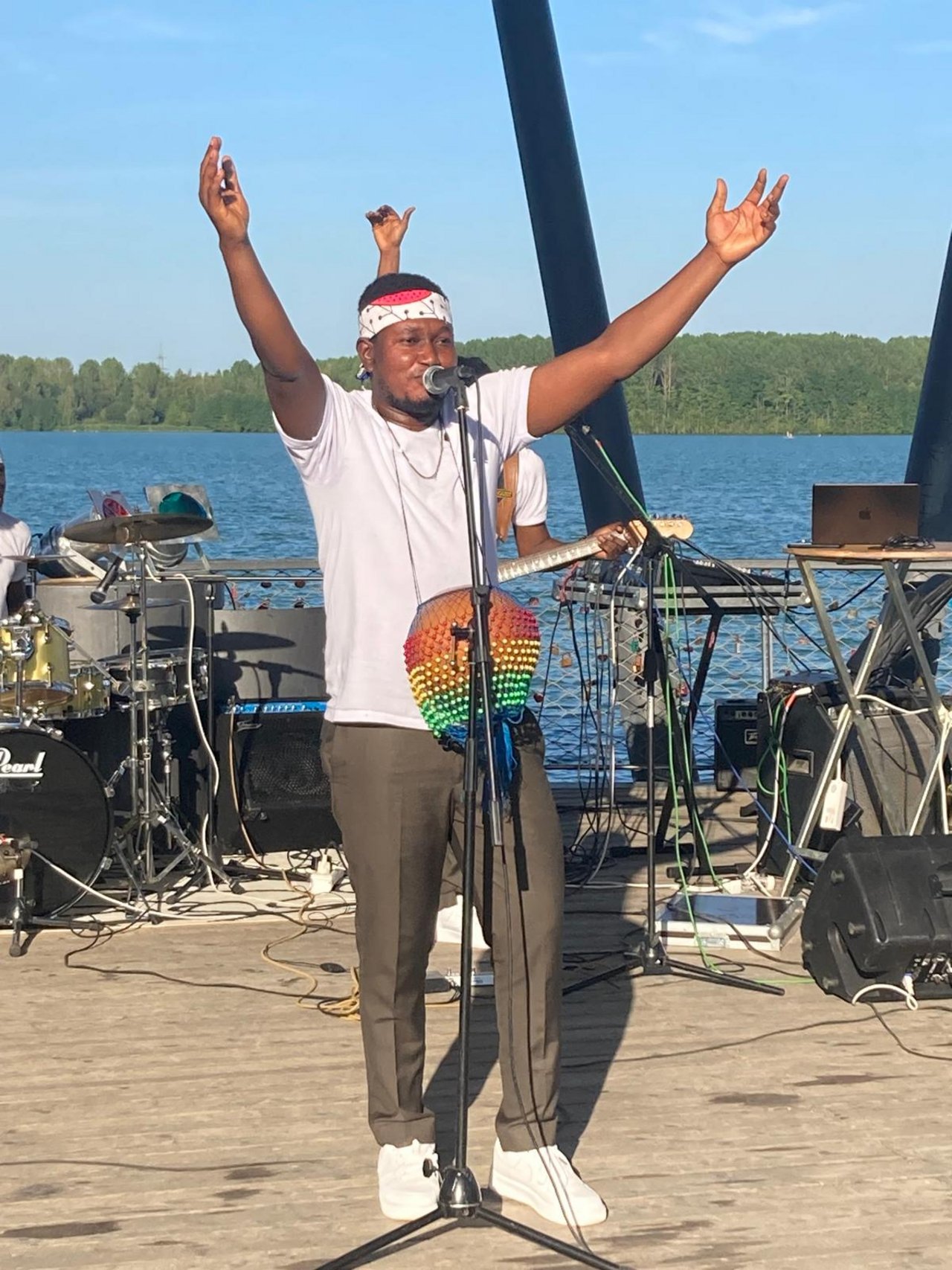

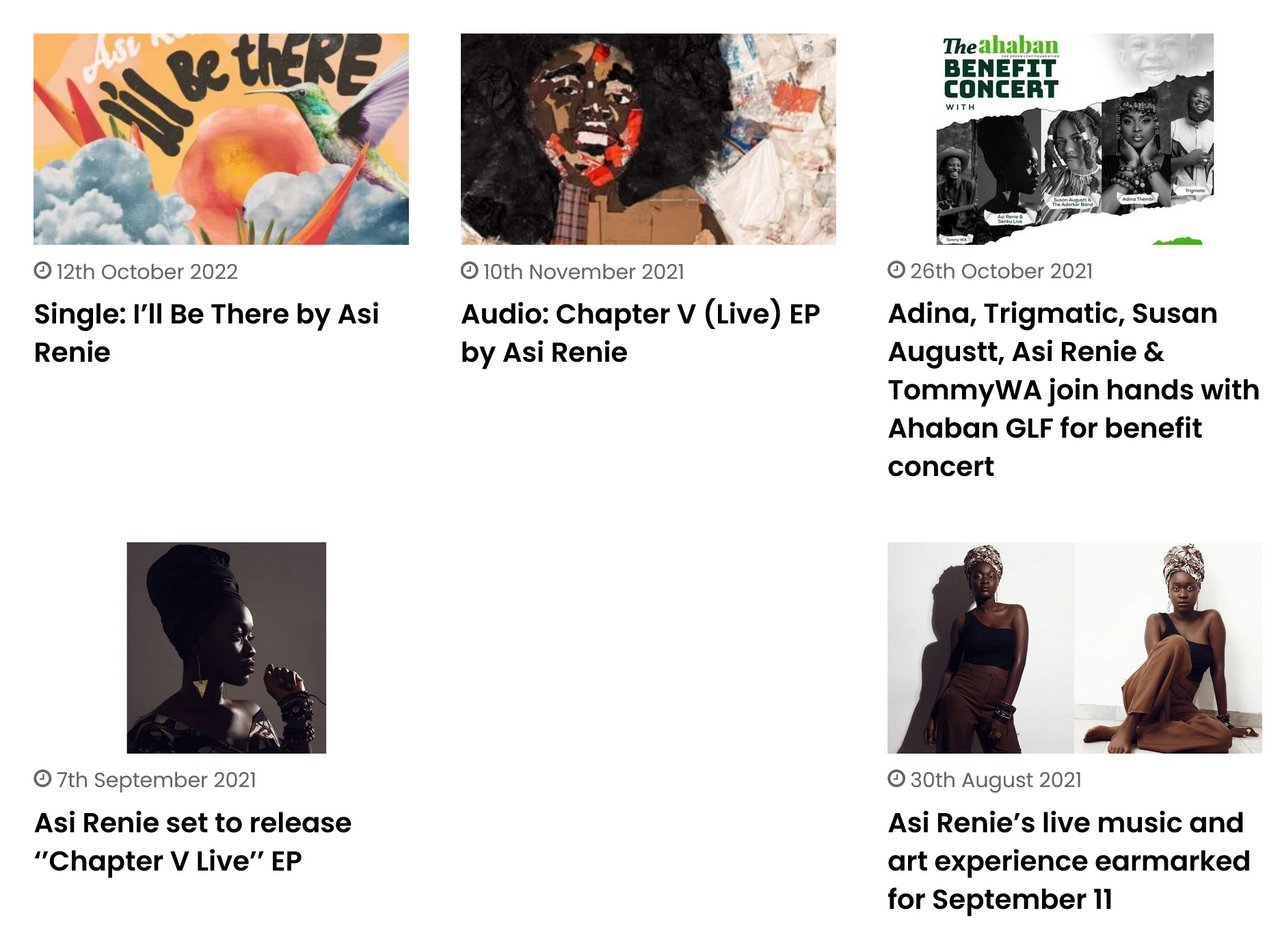
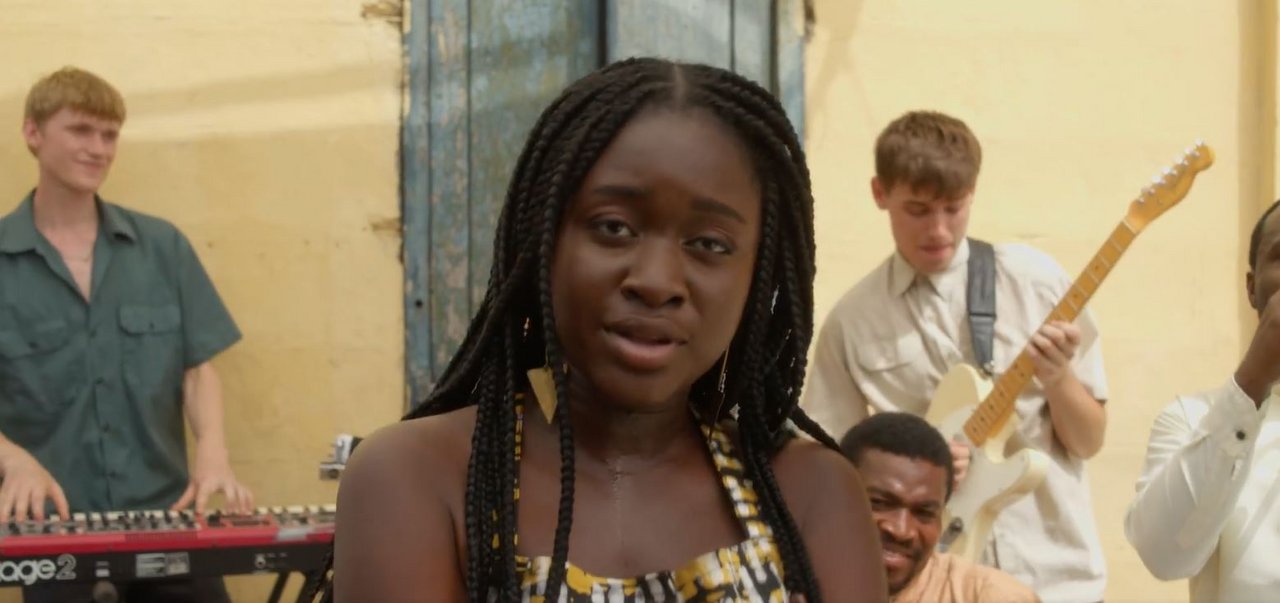

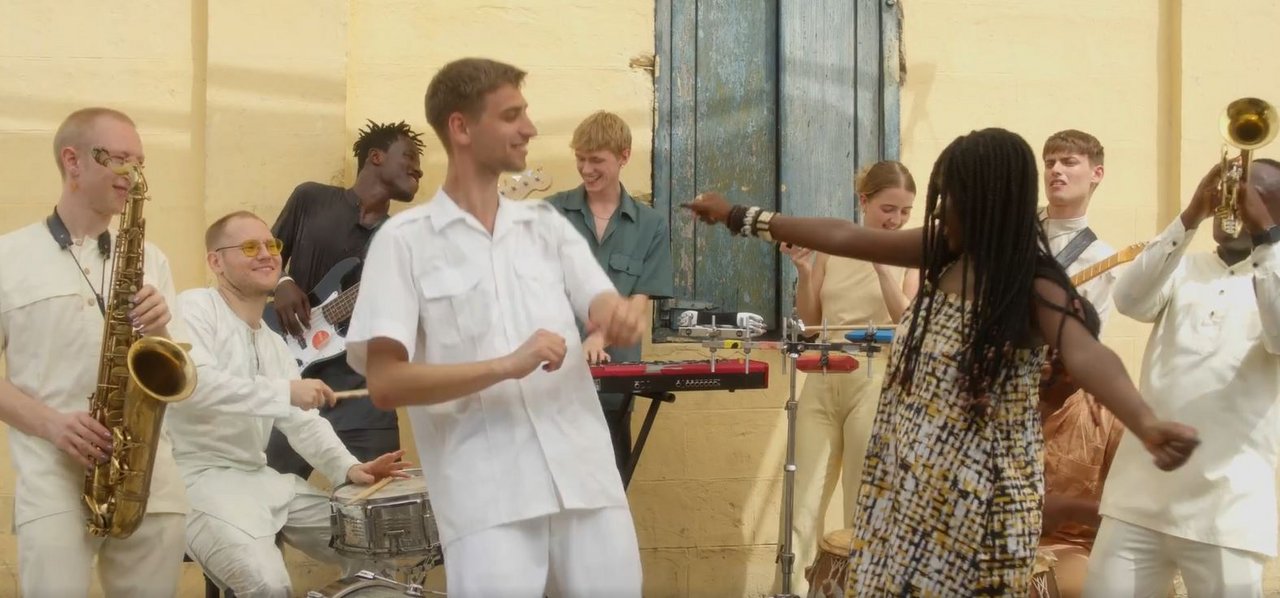

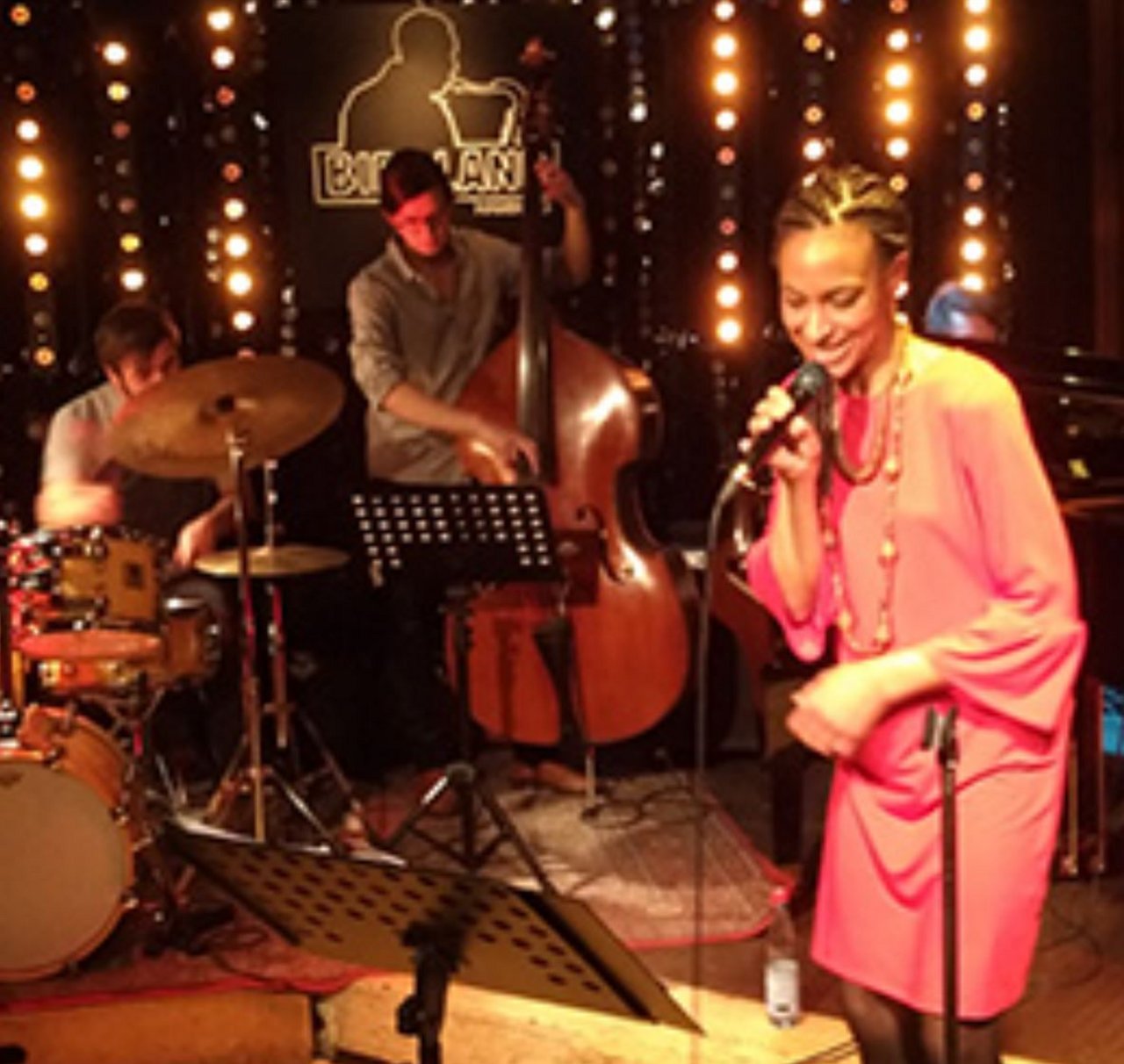
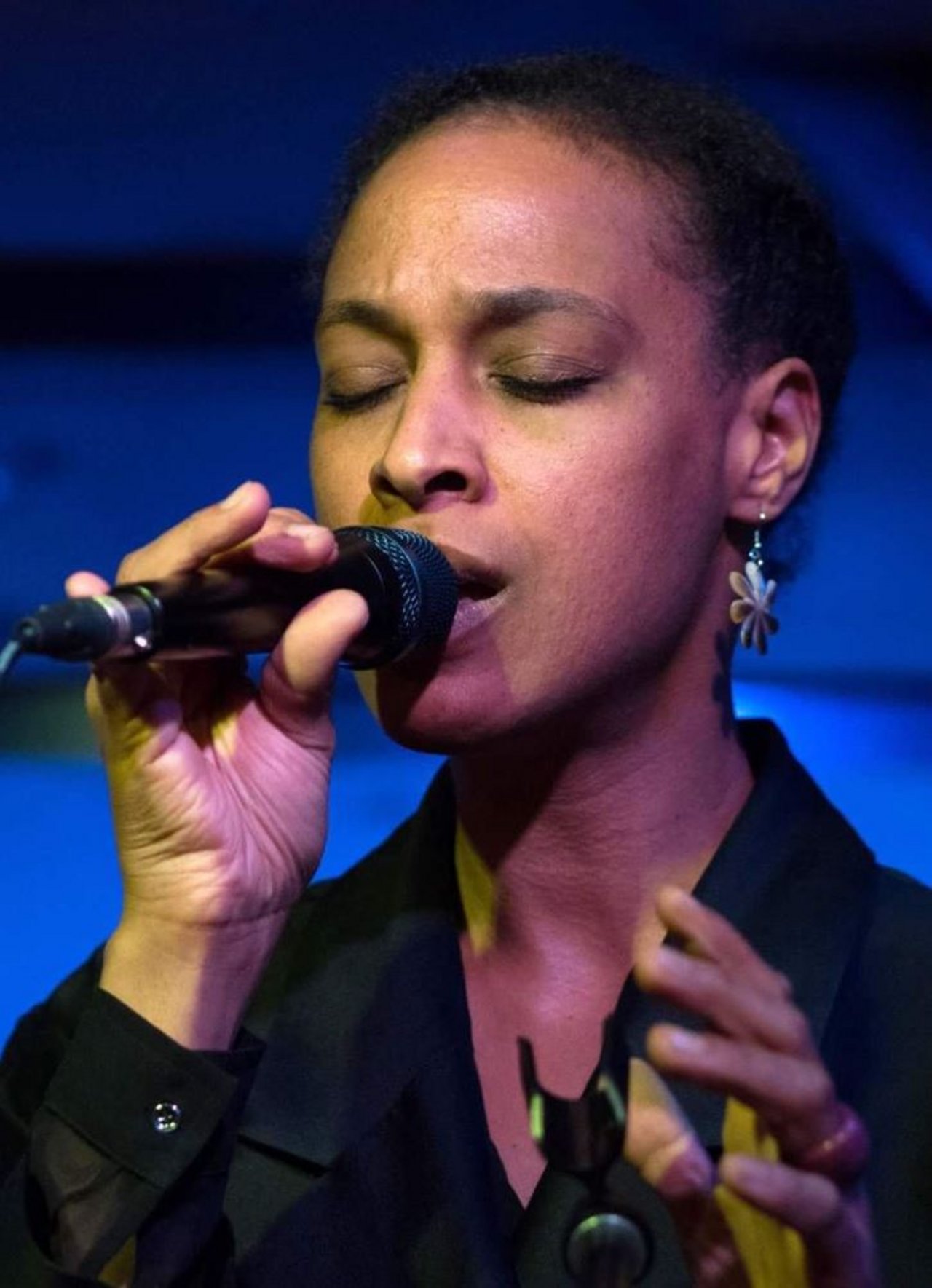
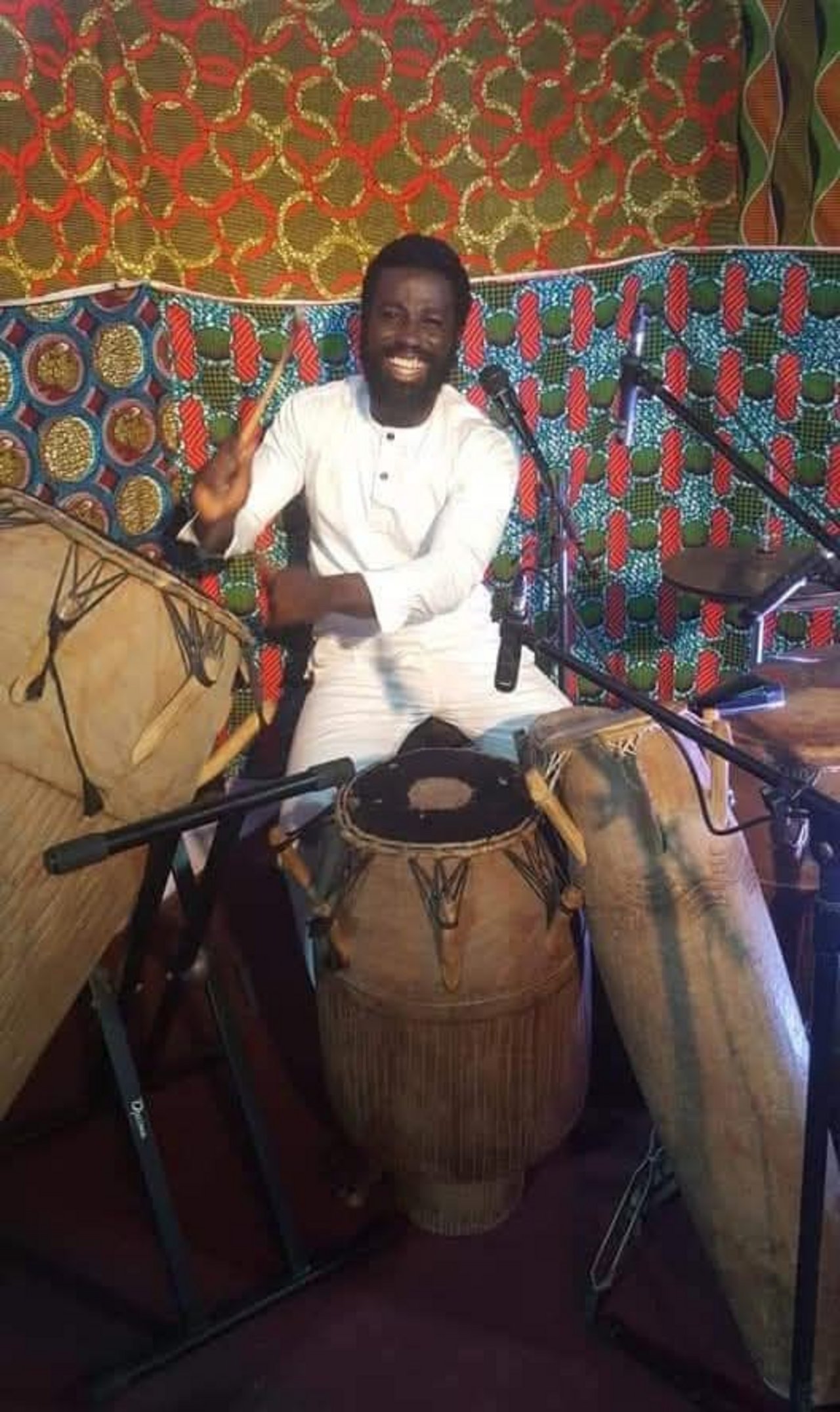
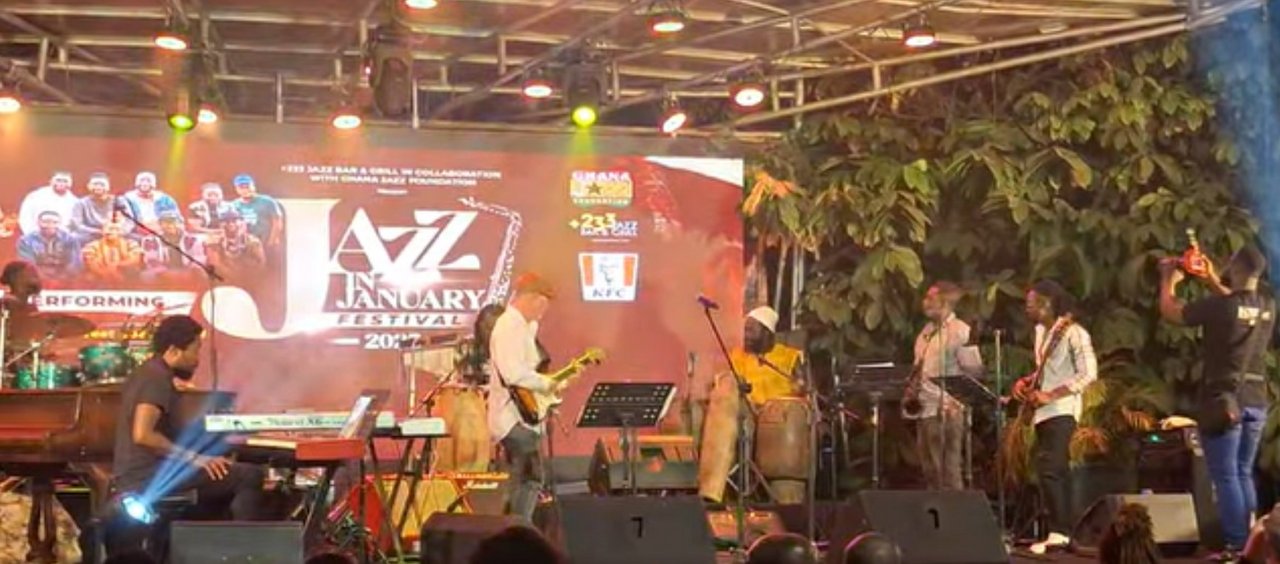
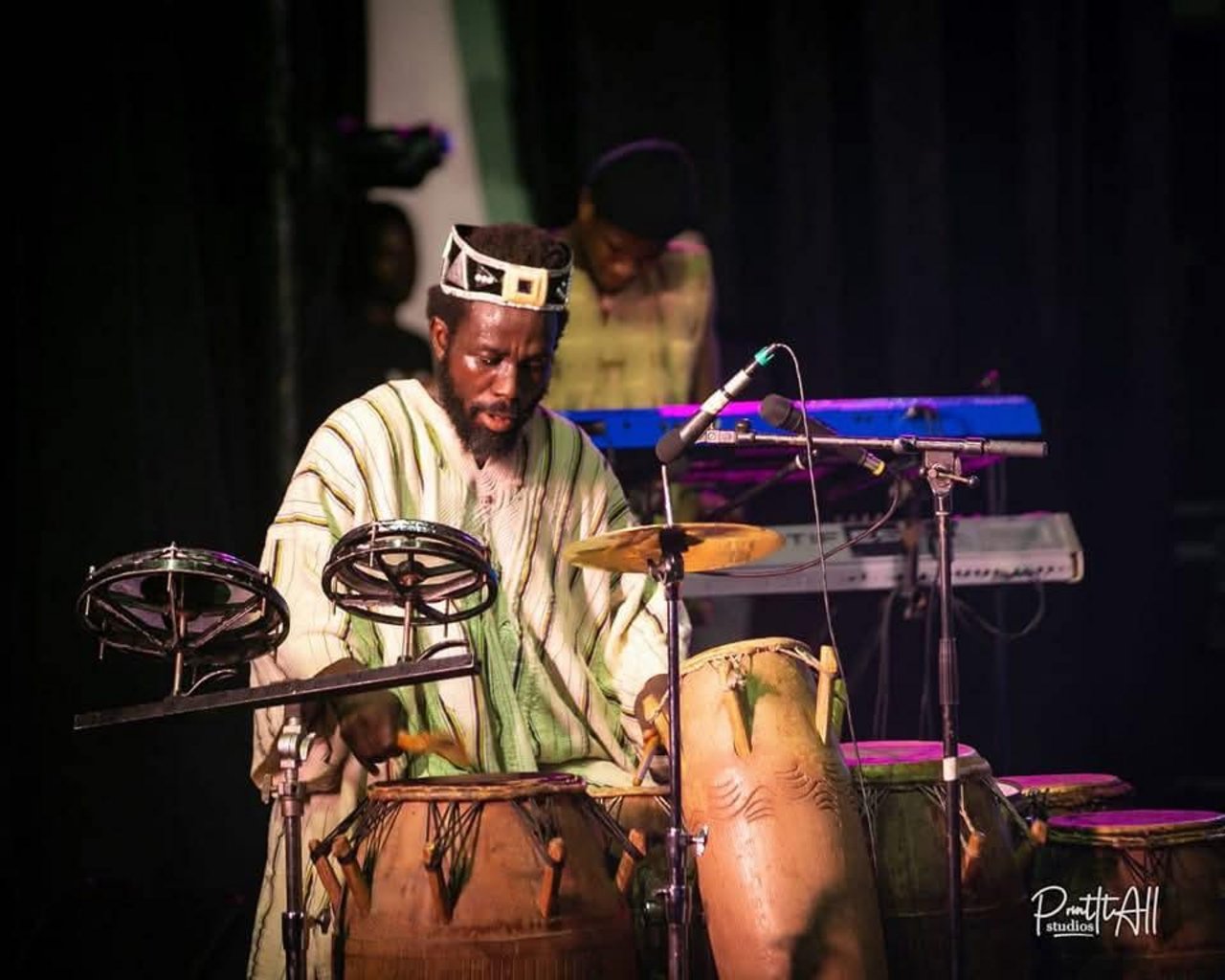
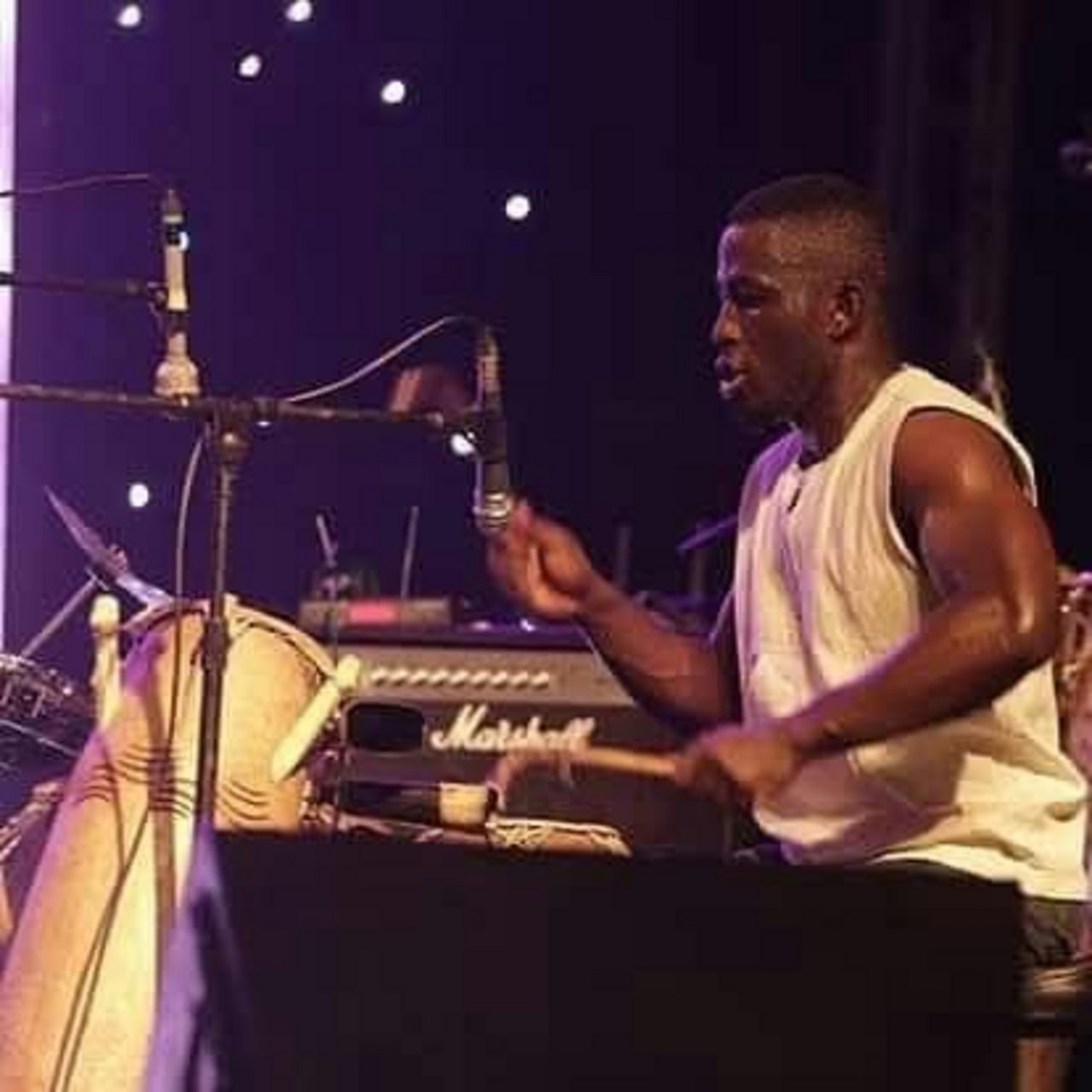
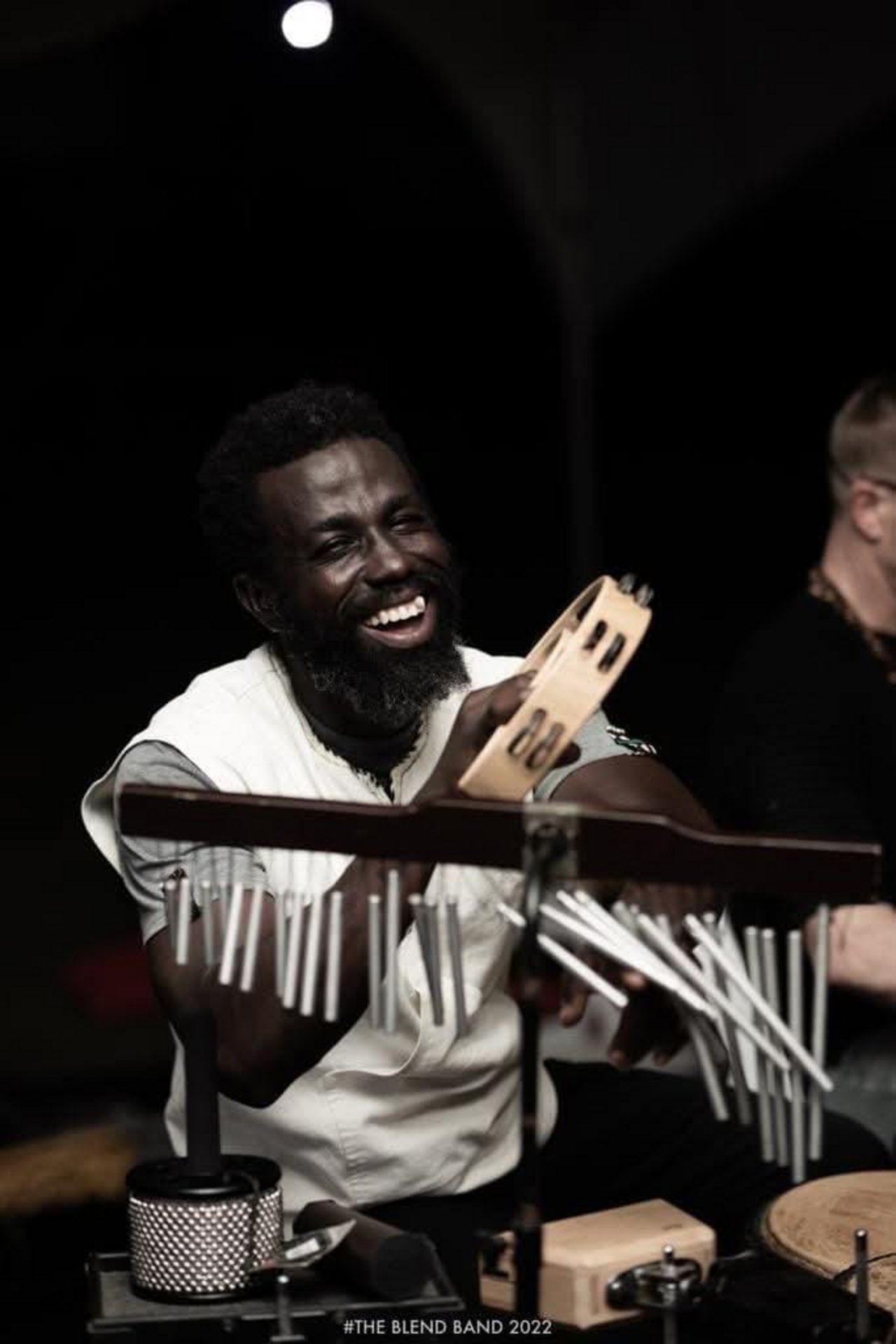
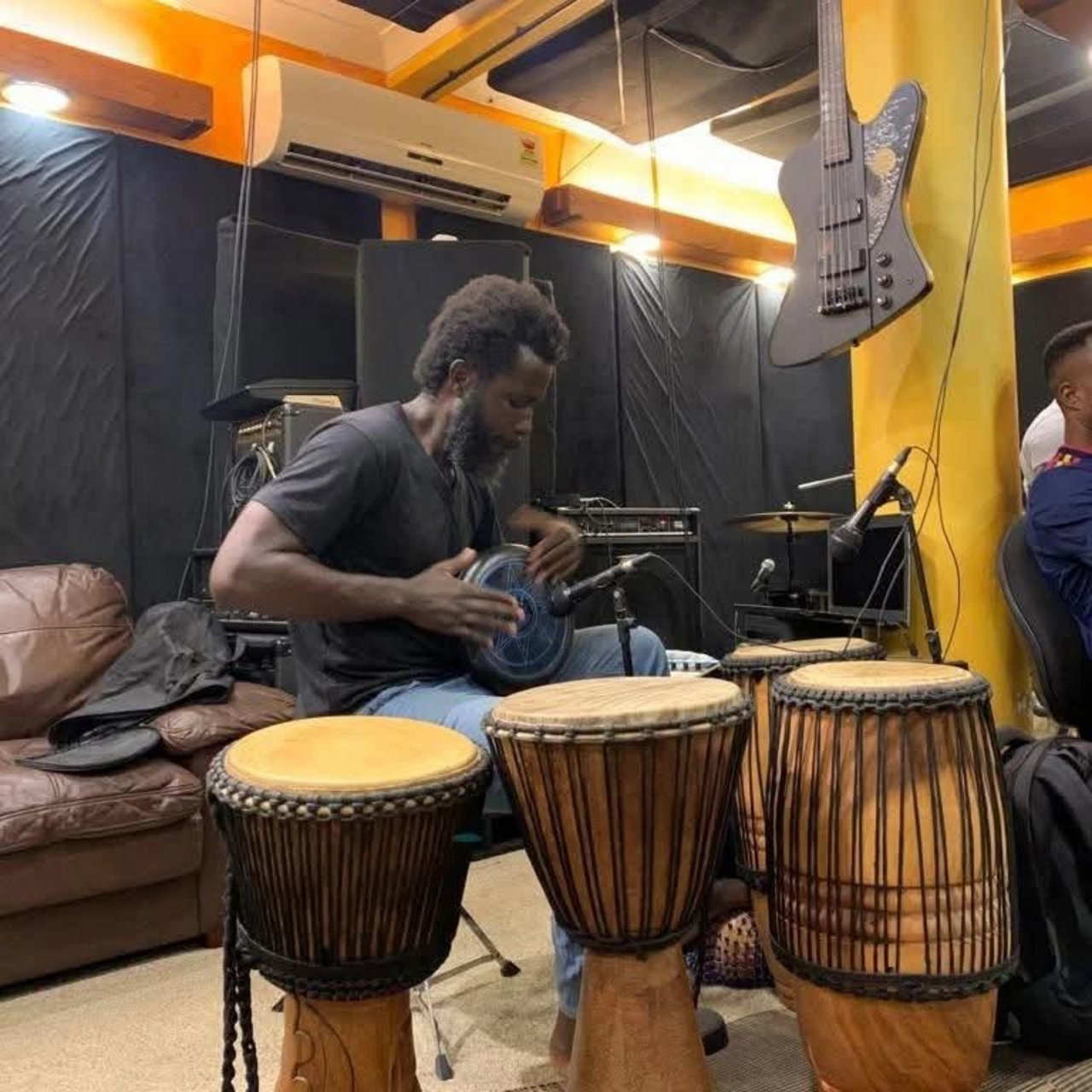
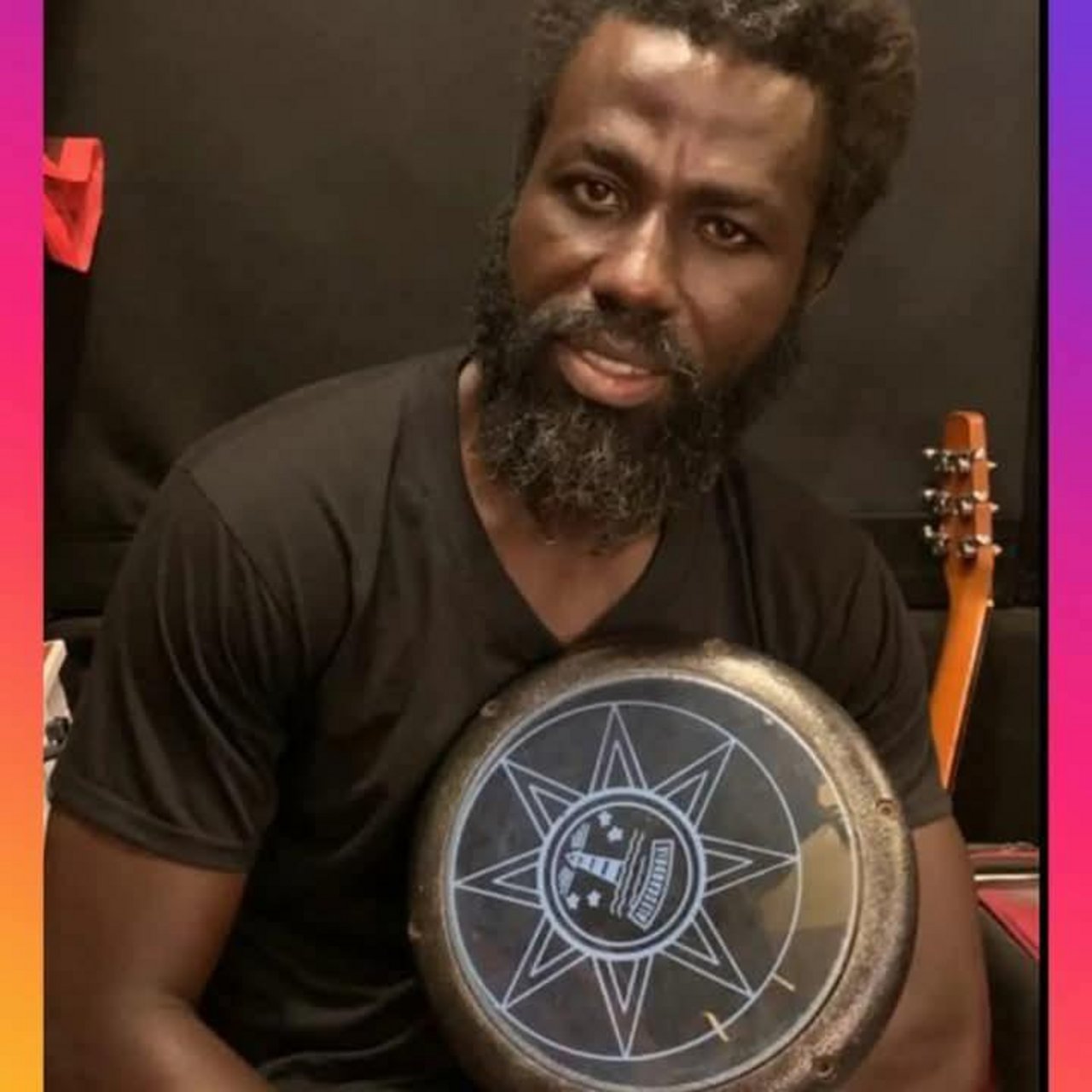
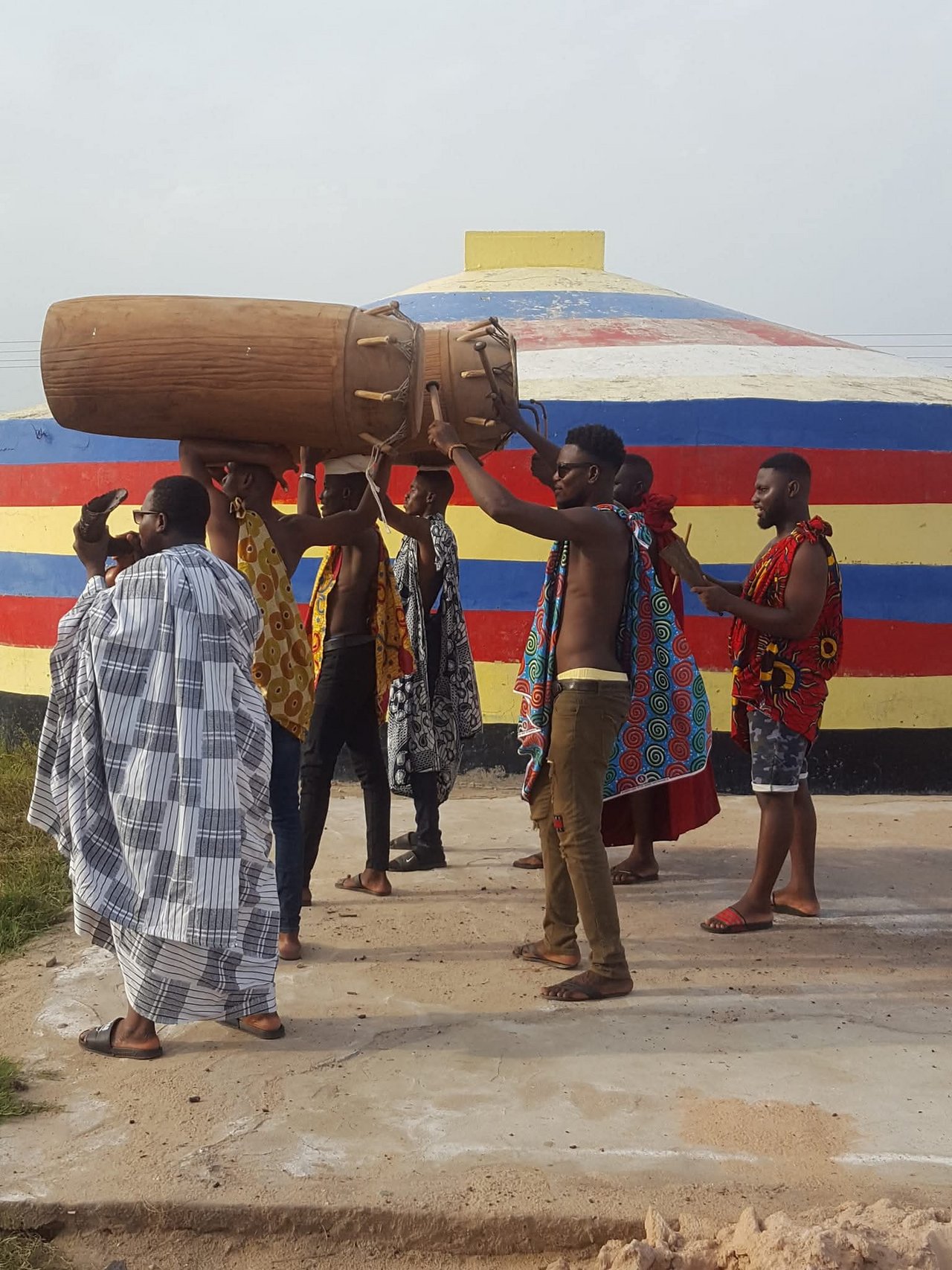
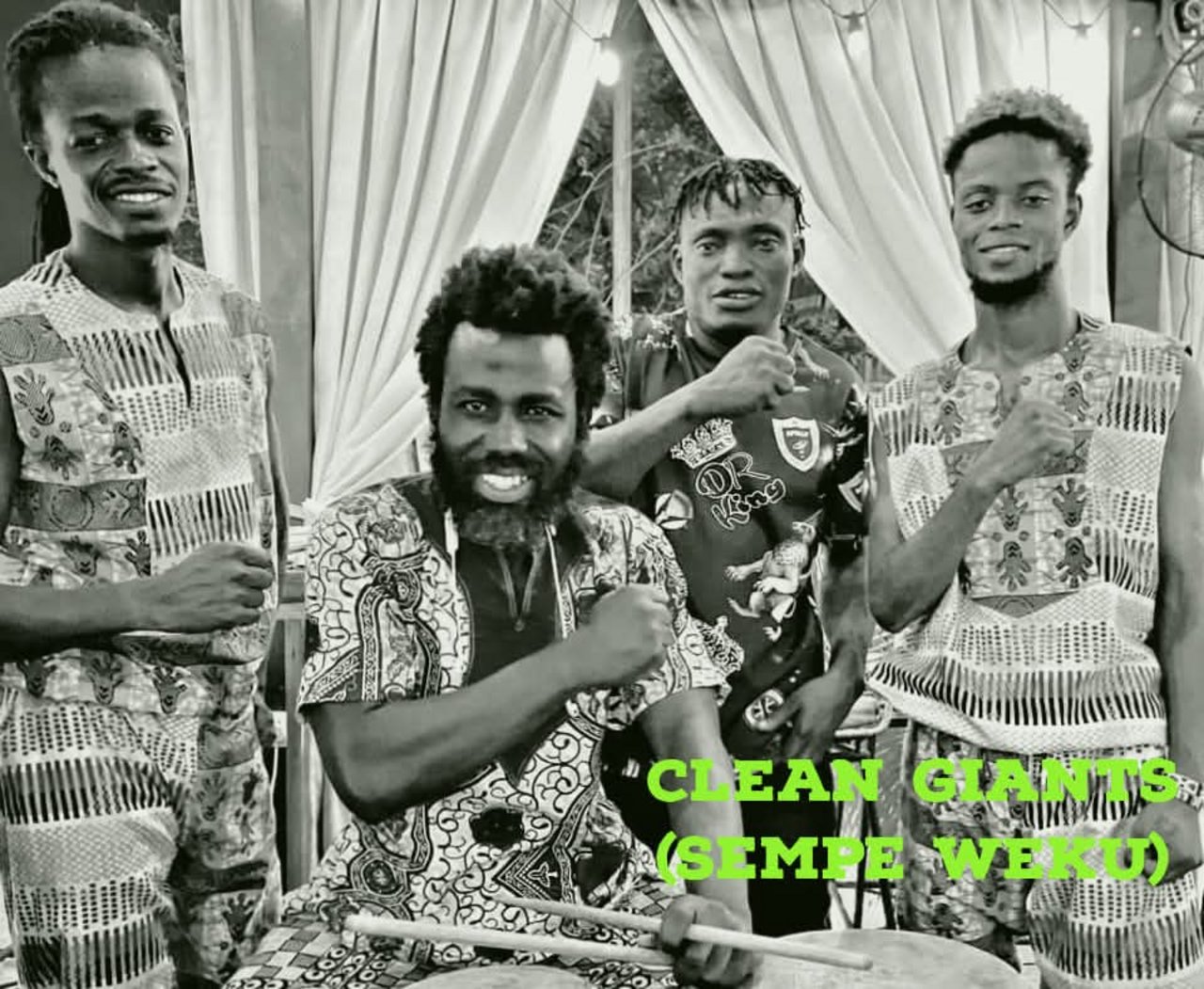
AFROBEAT und AFROFUSION
30. April - Internationaler Tag des Jazz
JAZZ TOUR in GHANA April-Mai 2027
Jazz Bands aus Deutschland - Frankreich - Niederlande
| VORNAME | NAME | FACH | NATIONALITÄT | STADT | LAND |
| Caris | Hermes | Bass | DEUTSCH | Köln | Deutschland |
| Christine | Corvisier | Tenor Saxofonistin Arrangements Kompositionen | DEUTSCH | Köln | Deutschland |
| Shuteen | Erdeneboatar | Pianistin Komponistin | MONGOLISCH | München | Deutschland |
| Emile | Parisien | Alt Saxofon | FRANZÖSISCH | Paris | Frankreich |
| Camille | Bertault | Gesang | FRANZÖSISCH | Paris | Frankreich |
| Peter | Sommuah | Trompete | GHANAISCH | Amsterdam | Niederlande |
| Beatrice | Asare-Lartey | Gesang | GHANAISCH | Hamburg | Deutschland |
| Joy | Frempong Aka Oy | Syntheziser Gesang | GHANAISCH | Berlin | Deutschland |
SPENDEN
Von Kulturen Lernen e.V.
AFRO FUSION
GLS Gemeinschaftsbank eG
IBAN DE 50 4306 0967 4008 8844 00 BIC GENO DE M 1 GLS
GIGS LIVE-MUSIK
WORKSHOPS
ACCRA
Casely Hayford Rd - Flughafen-Wohngebiet Hinter dem Opeibea House
JAZZ FESTIVALS
19.-24. April 2027
22.-27.April 2026
Goethe-Institut
30 Kakramadu Straße neben NAFTI | P.M.B. 52 Cantoments, Accra
We foster bilateral cultural exchange programs between Germany and Ghana.
We initiate film series, exhibitions, concerts, seminars and festivals, always with the goal to facilitate artistic production, reception and reflection involving actors from both countries.
+233302776764
+233JAZZ Bar und Grill
Doctor Isert Street, North Ridge 233 Accra, Ghana
+233 (benannt nach der ghanaischen Vorwahl) ist der beste Ort, um Live-Musik in Accra zu erleben. Zu den legendären Künstlern, die hier aufgetreten sind, gehören die Highlife-Stars Gyedu Blay Ambolley & the Sekondi Band, Dela Botri und die Evergreen Dance Band.
Auch internationale Acts entscheiden sich häufig für diesen Veranstaltungsort, und auf Tournee befindliche Musiker arbeiten regelmäßig mit ghanaischen Musikern zusammen, wie zum Beispiel kürzlich Joss Stone.
AFROBEAT
Afrobeat (Afrofunk) ist ein westafrikanisches Musikgenre, das Einflüsse aus nigerianischer (z. B. Yoruba- und Igbo-Musik) und ghanaischer (z. B. Highlife) Musik mit amerikanischen Funk-, Jazz- und Soul-Einflüssen verbindet.
Vom Afrobeat zu unterscheiden ist Afrobeats, eine Kombination von Klängen, die im 21. Jahrhundert in Westafrika entstanden sind. Mit verschiedenen Einflüssen ist Afrobeats eine eklektische Kombination aus Genres wie Hip-Hop, House, Jùjú, Ndombolo, R&B, Soca und Dancehall.
Die beiden Genres werden zwar oft miteinander vermischt, sind aber nicht dasselbe.
Viele Jazzmusiker haben sich von dem Genre des Afrobeat angezogen gefühlt. Von Roy Ayers in den 1970er Jahren bis zu Randy Weston in den 1990er Jahren kam es zu Kollaborationen, aus denen Alben wie Africa:Centre of the World von Roy Ayers, das 1981 auf dem Label Polydore erschien. 1994 nahm der amerikanische Jazz-Saxophonist Branford Marsalis Samples von Felas „Beasts of No Nation“ in sein Album Buckshot LeFonque auf.
AFROFUSION
ist ein Tanz- und Musikstil, der zwischen den 1970er und 2000er Jahren entstanden ist.
Dieser Musikstil ist eine Verschmelzung verschiedener regionaler und interkontinentaler Musikkulturen wie Jazz, Hip-Hop, Kwaito, Reggae, Soul, Pop, Kwela, Blues, Folk, Rock und Afrobeat.
Als Genre und musikalische Kompositionsform umfasst Afrofusion traditionelle afrikanische Musik, alternative Musik und Afropop und vermischt verschiedene Genres in einem experimentellen Crossover-Stil. Afrofusion-Songs enthalten oft Gesang in einer Reihe afrikanischer Sprachen neben anderen Sprachen wie Spanisch, Englisch und Französisch. Zum Beispiel Englisch, isiXhosa, Duala und Spanisch in dem mehrsprachigen Song „Waka Waka“.
SENEGAL
Coumba N' Doffene Diouf
Geboren 1972 und aufgewachsen in Dakar, Senegal. N´Doffene selbst ist schon immer als Musiker unterwegs gewesen und spielt fast alle afrikanischen Saiteninstrumente. Er hat mit vielen Künstlern auf der ganzen Welt zusammengearbeitet und veröffentlicht jetzt gerade sein erstes Solo Album.
Er selbst zieht sich am liebsten mit seiner Djembe an ein lauschiges Plätzchen zurück, um zu klimpern, zu beobachten und Klangfolgen auszuprobieren. Seine Ausdrucksform und "Sprache" ist die Musik. In einer patriachlen Gesellschaft im Senegal aufgewachsen verarbeitet N'Doffene seine erlebte Welt.
Seine Texte auf französisch oder Wolof sind kritischer Natur. Ein besinnlicher Musiker mit einer sanften Stimme. Der nicht unter seinem Namen veröffentlicht. Und seinen Werten treu bleibt. Daher auch jeglicher Kommerzialisierung kritisch gegenüber steht.
Der Mann mit den afrikanischen Saiteninstrumenten
Mit einem Fuß fest in der Vergangenheit verankert und mit dem anderen entschlossen, sich in der Welt von heute weiterzuentwickeln, ist N'Doffene der Künstler einer Generation, die den Abbau kultureller Barrieren miterlebt hat.
N'Doffene hat einen einzigartigen und sehr persönlichen Zugang zum Gitarrenspiel. Er stimmt sein Instrument auf die pentatonische Skala und spielt auf offenen Saiten wie auf einer Xalam, einem traditionellen senegalesischen Saiteninstrument. Er ist auch einer der wenigen afrikanischen Musiker, die Gitarre, Xalam und Kora spielen. Anders als die Griots ist sein Gesang zurückhaltend und intim, mit Variationen in Rhythmus und Melodie. Der Senegal hat eine reiche und vielfältige Musiktradition, die je nach Region und lokaler Kultur sehr unterschiedlich ist.
N'Doffene vereint verschiedene Genres aus den verschiedenen ethnischen Gruppen, die den Senegal und die Welt im Allgemeinen ausmachen, und schafft so einen neuen Ansatz für afrikanische Musik, der seine Aufgeschlossenheit und sein Interesse an allen Arten von Musik widerspiegelt.
Im November 2012 wurde N'Doffene nach einem strengen Auswahlverfahren ausgewählt, um das Duo Wolfgang Seligo (Klavier) und Peter Strutzenberger (Kontrabass) zu begleiten.
N' Doffene hat mit allen senegalesischen Künstlern der alternativen Musik zusammengearbeitet, zuletzt auf dem Album African Classics des Pianisten Ismael Cisse, das im Februar 2013 erschien.
2013 begann er eine neue Zusammenarbeit mit ZANI, einer äußerst talentierten amerikanischen Sängerin, für ein Fusion-Album.
2015 cheikh baye fall wawe fall sa kawe sa kaname
Dieses Lied, diese Spiritualität gibt Emotionen ohne Grenzen.
MELOKAAN PROJEKT 2024
XALAM
Die Xalam, eine traditionelle Wolof-Gitarre, besteht aus einer kleinen Kalebasse, über die ein Ziegen- oder Kuhfell gespannt ist, und vier Saiten. Der Bolon ist eine tiefer gestimmte Version des Xalam.
N´Doffene und Malick Diaw, Paris 2012
In der Casamance gibt es das dreisaitige Ekonting. Es gibt noch weitere Saiteninstrumente wie die Riiti, eine einsaitige Geige mit einem Korpus aus Käseholz und Fell. Die Riiti wird bei Zeremonien der Fulani und Serer verwendet.
AFRO FUSION
Fusionen verschiedener regionaler und interkontinentaler Musikkulturen
Umfasst traditionelle afrikanische Musik, alternative Musik und Afropop und vermischt verschiedene Genres in einem experimentellen Crossover-Stil
Afrofusion-Songs enthalten oft Gesang in verschiedenen afrikanischen Sprachen wie Wolof neben anderen Sprachen wie Französisch, Englisch und Spanisch.
Wolof wird von mehr als 10 Millionen Menschen gesprochen, und etwa 40 Prozent - ca. 5 Millionen Menschen - der Bevölkerung Senegals sprechen Wolof als Muttersprache.
Durch die zunehmende Mobilität und insbesondere durch das Wachstum der Hauptstadt Dakar entstand der Bedarf an einer gemeinsamen Sprache: Heute sprechen weitere 40 Prozent der Bevölkerung Wolof als zweite oder erworbene Sprache. In der gesamten Region von Dakar bis Saint-Louis und auch westlich und südwestlich von Kaolack wird Wolof von der überwiegenden Mehrheit der Menschen gesprochen. Wenn die verschiedenen ethnischen Gruppen im Senegal in den Städten zusammenkommen, sprechen sie in der Regel Wolof. Es wird daher in fast allen Regional- und Departementshauptstädten Senegals gesprochen. Die offizielle Sprache des Senegal ist jedoch Französisch.
In Gambia sprechen zwar etwa 20 bis 25 % der Bevölkerung Wolof als Muttersprache, doch hat es einen unverhältnismäßig großen Einfluss, da es in Banjul, der Hauptstadt Gambias, weit verbreitet ist und dort von 75 % der Bevölkerung als Muttersprache verwendet wird. Auch in Serekunda, der größten Stadt Gambias, spricht oder versteht etwa 70 Prozent der Bevölkerung Wolof, obwohl nur eine winzige Minderheit ethnisch Wolof ist.
KENIA
CATHY MATETE
Cathy Matete ist eine zweifach preisgekrönte kenianische Sängerin, Songwriterin und Performerin, die in Nairobi lebt. Für Cathy ist Musik wie ein Soundtrack des Lebens, der die Wahrheit, die Literatur des Herzens und den Zeitgeist widerspiegelt.
Cathys Musik ist voller leidenschaftlicher Energie, die die afrikanische Geschichte erzählen will. Ihr einzigartiger Stil ist das Ergebnis einer lebenslangen Beschäftigung mit Musik, die hauptsächlich von RnB, Lovers Rock, Roots Reggae, Neo-Soul und Elementen afrokanischer Klänge beeinflusst ist. Als lebenslange Schöpferin schreibt sie bedeutungsvolle, nachvollziehbare Musik voller Emotionen. Ihr einzigartiger Stil vermischt Lovers Rock und Roots Reggae mit Neo-Soul und afrikanischen Sprachen. Mit ihrer kraftvollen, himmlischen Stimme und ihrer dynamischen Bühnenpräsenz hat sie sich in der Reggaewelt einen Namen gemacht.
Cathy ist bei großen Veranstaltungen wie dem Jamhuri Reggae Festival, SoFar Gig und der Alliance Française of Nairobi aufgetreten. Ihre Hitsingle „No Retreat“ überraschte Kenia und sie teilte die Bühne mit internationalen Reggae-Stars wie Queen Ifrica, Capleton, Jah 9 und Christafari Band. 2019 wurde Cathy bei den Kalasha Awards für ihren Song „Woman Of Steel“ im Film „What's on Your Mind“ als „Best Original Score“ ausgezeichnet.
Am 11. August trat sie auf dem Afrikafestivals in Dürwiß am Blausteinsee auf, welches zum 10. Mal an dieser tollen Location stattgefunden hat.
https://www.facebook.com/OfficialCathyMatete
https://www.instagram.com/cathy_matete
https://twitter.com/Cathymatete
GHANA
ADASAMMA
Die Musik von Adasamma besteht in erster Linie aus ghanaischem Highlife mit Elementen aus Jazz, Afrobeats und R&B für alle, die echte Musik zu schätzen wissen.
Wir wollen Highlife-Rhythmen und -Melodien aufwerten, indem wir ein neues Genre namens „Highlife-Fusion“ schaffen.
Keyboarder Duah Richard Sarpong
Gitarrist Bright Osei Baffour
Bassgitarrist Duah Richmond Sarpong
Lead-Sänger Hakeem Jean
Schlagzeuger Ebenezer Arthur
Schlagzeuger Samuel Boakye
ASI RENIE
Asi Bampoe Abu Renie , geboren in Fairfax, Virginia, Vereinigte Staaten von Amerika, lebt heute in Accra, Ghana.
Ein junger und talentierter Sänger, der in Ghana Wellen schlägt. Da die Musikgenres in Ghana weiter wachsen und sich ausbreiten, ist es immer spannend, neue Acts zu sehen, besonders in Genres wie Soul. Die talentierte Sängerin hat an der African Leadership University in Mauritius Ingenieurwesen/Führungskompetenz studiert.
Mit ihrem Künstlernamen „Asi“, der auch der Name ihrer Großmutter ist, ehrt sie ihre Großmutter, die verstarb, als Asi noch zur High School ging.
Asi hat zwei Singles veröffentlicht: 'Hold On' und 'Love Riddim' mit Spacely“. Und 2 Extended Plays (EPs); „PIECE OF ME“ und „CHAPTER V“, die viel Airplay und Aufmerksamkeit in den sozialen Medien erhalten haben. Sie hat sich zu allem hingezogen gefühlt, was mit Soul zu tun hat, weil sie möchte, dass ihre Fans und Zuhörer die Stimmung, die ihr Song transportiert, tief spüren, sei es glücklich, traurig oder wütend.
Ihr Lieblingssong ist bis jetzt „You Hurt Me“, weil er in einer Zeit der Heilung und Selbsterkenntnis geschrieben wurde.
Asis Vorstellung von einer großen Show? Die talentierte Sängerin, die gerne mit der amerikanischen Sängerin Lauryn Hill die Bühne teilen würde, sagte, dass sie hofft, eine „super-intime Live-Session mit Matten, Kissen und vielen Pflanzen“ zu veranstalten. Der Termin steht wegen der COVID-19-Pandemie noch nicht fest. Aber: „Das ist der Plan!“. Asi teilte ihren Fans mit, dass sie ihren ersten Live-Auftritt außerhalb Ghanas in Südafrika erwartet. „Ich habe eine starke Verbindung zu diesem Ort. Mein engster Freund ist Südafrikaner und er hat mir immer ihre Musik gezeigt, ihr Sound ist wunderschön.
Sie hinterließ die folgende schöne Botschaft für aufstrebende Sängerinnen und Sänger:
“ Tut es einfach! Wenn man Musik macht, spürt man eine Vollständigkeit, die man nirgendwo anders finden kann.“
Ihre neueste Single wurde am 17. Oktober 2024 veröffentlicht.
Asi hat auch mit der dänisch-ghanaischen Band TOTAL HIP REPLACEMENT & ANYANKOFO einen meiner Lieblingssongs aufgenommen
Feeling (feat. Asi Renie, Kwame Yeboah) , den man sich auch auf Spotify anhören kann.
Im Video werden Drehorte in Accra und Cape Coast, Ghana, gezeigt.
Joseph Bannor
@kunimyelor_gh
Joseph ist ein äußerst talentierter Musiker aus Ghana, der in Accra lebt. Er beherrscht seine traditionellen Perkussionsinstrumente auf Weltklasseniveau. Arrangeur bei Best Wave Music Technologies.
General Associate of Arts and Sciences – Juni 2001 bis August 2023 an der Modern Sciences and Arts University
Joseph hatte seit seinem achten Lebensjahr eine Leidenschaft für Musik und verfolgte diese nach seinem Schulabschluss professionell weiter. Zu seinen bemerkenswerten Meilensteinen gehören:
- Pan-African Youth Orchestra (PAYO)
Hier begann er seine Karriere und stellte sein Talent unter jungen Musikern mit unterschiedlichem ghanaischem Hintergrund unter Beweis.
- Pan-African Orchestra (PAO):
Dank seines Könnens wurde er in dieses renommierte Orchester aufgenommen, das für seine Mischung aus traditionellen und neotraditionellen afrikanischen Klängen bekannt ist. Das PAO wurde 1988 von Nana Danso Abiam gegründet und spielt Instrumente wie Atenteben-Flöten, Gyile-Xylophone, Kora-Harfenluten und Gonje-Geigen.
Später schloss sich Joseph dieser Ghanaischen Gospel Gruppe an, die ein weltweit erfolgreiches Album veröffentlichte und gemeinsam mit amerikanischen Gospelkünstlern auftrat. Der Leiter der Band, Kenneth Appiah, ist ein Komponist und Afro-Pop-Künstler aus Accra.
Anschließend kam er zu den Gh Jazz Kollektiven mit namhaften Musikern wie Victor Dey jnr, Bernard Ayisa.. Er hatte die Gelegenheit, auch mit Etienne Mbappe, Sean Nowell, Nicolas Genest, Bruce Harrisund anderen zu spielen.
Heute leitet Joseph seine eigene Band, die lokale Volkslieder mit internationalen Genres , zu 80 % ghanaische Trommeln einbezieht und seine starken stimmlichen Fähigkeiten zur Geltung bringt.
Mit einem neuen Album in Aussicht entwickelt sich seine musikalische Reise weiter.
JAZZ ERLEBBAR IN REGIONEN DEUTSCHLANDS
BERLIN
Kesselhaus in der Kulturbrauerei
BIELEFELD
BREMEN
DISSEN
FRANKFURT
Die Jazz-Initiative Frankfurt am Main e.V. (JIF)
Brotfabrik Frankfurt, Kulturverein 21 e.V.
HAMBURG
HANNOVER
Kulturpalast Linden e.V. - Hannover
HARSEWINKEL
FARMHOUSE Jazzclub Harsewinkel e.V.
HILDESHEIM
KUFA Kulturfabrik e.V. - Hildesheim
HOLZMINDEN
Jazz Club Holzminden e. V. - Holzminden
KASSEL
Kulturzentrum Schlachthof Kassel
KÖLN
LEER
LÜNEBURG
MARBURG
MINDEN
MOERS
JAZZ FESTIVAL für Musik, Miteinander, Freysinn und: Klangfriede!
MÜNCHEN
MÜNSTER
NIENBURG
OLDENBURG
OSNABRÜCK
RHEDA-WIEDENBRÜCK
Jazz-Club Rheda-Wiedenbrück e.V.
ROSTOCK
USEDOM
WILHELMSHAFEN
Jazzclub Wilhelmshaven-Friesland
WOLFENBÜTTEL
WOLFSBURG